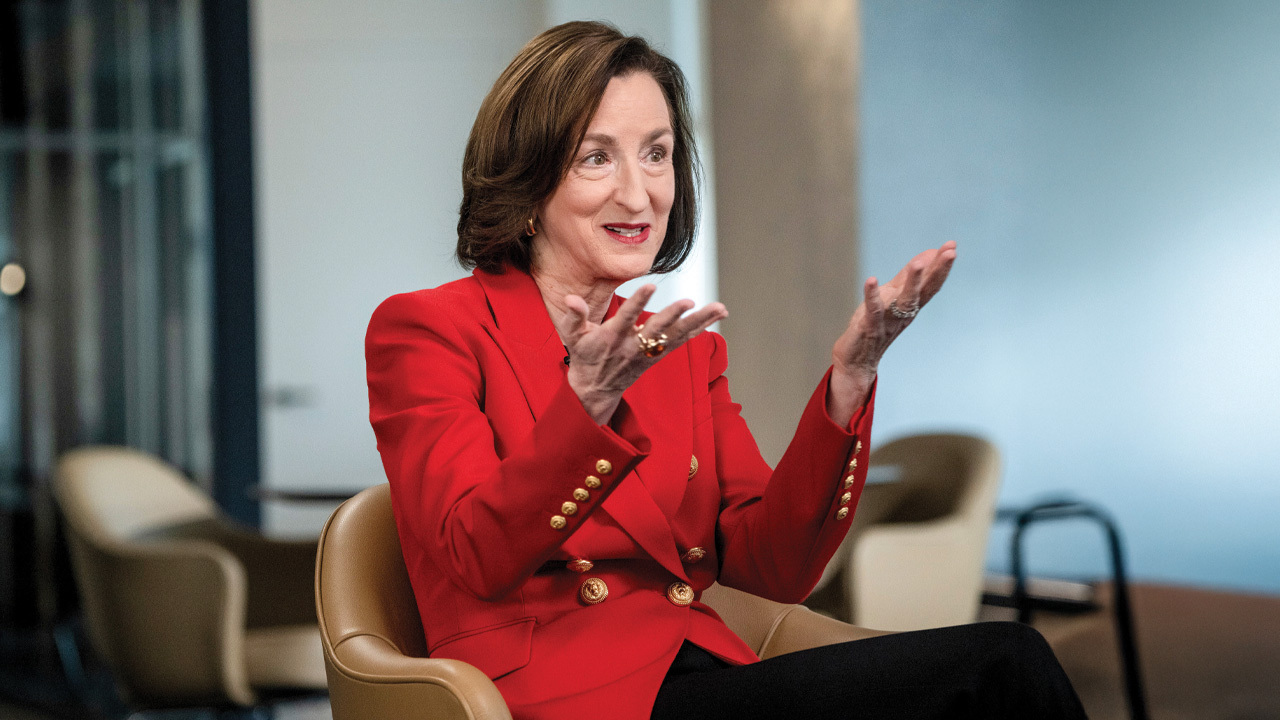
When longtime banker Catherine Keating looks back on how the financial services industry has changed during her decades at work, she points to the influence of technology as the biggest difference.
Keating came to Wall Street during a time when the stock exchange involved traders with paper tickets. Into that manual, analog world came computers: first the mass adoption of the internet, and then personal technology like the Blackberry. Getting her first Blackberry in 1999, when she and her lawyer husband were juggling two more-than-full-time jobs and two small children, “was life-changing,” Keating told American Banker. “For the very first time, I could be connected to being at the office without being there.”
Read more about
Read more profiles of senior executives’ careers in
The pace of change has only gotten faster for technology since those days, with the iPhone, cloud computing, and AI all rushing past. On Wall Street, T+3 settlement is rapidly becoming T+0 with real-time money movement. Keating, who retired earlier in 2025 from BNY, where she was the CEO of global wealth management, has seen it all during her years as a financial lawyer, wealth manager, asset manager and bank executive. Now, in her next phase as a director of public companies, she said it’s only going to get more exciting from here.
Starting off
Growing up in Virginia as the oldest of three, Keating lost her father when she was eight years old and watched her mother face the world as a young widow. She went to Villanova University on a scholarship and then chose the University of Virginia’s law school both because it was highly-ranked and because, as a state resident, tuition was ultra-low. (She received her degree in 1987, and now sits on UVA Law’s board of directors, after serving on Villanova’s board for a decade, including as chairman.)
Keating started off as a lawyer at Morgan Lewis & Bockius, covering tax, retirement, and wealth and investment management. During maternity leave with her second child, she took a call at home from the firm’s managing partner, who told her that she was being promoted to partner along with two other associates.
“I think he was excited for me to go back to work, because he mentioned that I had billed 1,400 hours that year while my two colleagues might bill 3,000,” Keating said in a 2017 commencement speech at UVA Law. But rather than looking down on her contribution, she recalled, the managing partner also was pushing the firm at the time to allow part-time partners, an innovation that allowed lawyers, mainly women, to operate at the highest levels of their jobs while dealing with home responsibilities. She cited this as evidence of her mother’s maxim: “Actions speak louder than words.”
In meetings with financial services clients during her lawyer days, Keating said, she listened intently, finding their work fascinating. When she left a decade later, it was to become one of them. She joined J.P. Morgan’s Private Bank, rising to become U.S. CEO in 2005 and then headed the Americas region of the investment management arm in 2011. It was during this period that
In 2015, she became CEO of Commonfund, which invests money for nonprofits. Three years later she moved to BNY to head the wealth management unit. She ran that division for seven years before stepping down. Recently, she was named to the board of insurer Guardian Life, adding that role to several charities where she also serves as a director.
Despite the long working hours on Wall Street, Keating feels a job in this industry is a worthwhile career goal for young people. “I found very inspiring the purpose of helping the people I work with have better financial futures, and doing it in a way that you can scale it so it can get to lots of people,” she said. “That is very, very satisfying to me.”
A shift in how Americans invest
In her years as a wealth management executive, Keating saw a change in how Americans approached retirement. Defined benefit plans gave way to personal retirement savings in 401(k)s and IRAs, giving workers more autonomy and flexibility, but with added risk. Now, every worker owns the responsibility for investing, and bears the consequences if investments go bad before or during retirement. “We have to be our own chief investment officer, our own chief financial officer, even our own chief people officer,” Keating said.
Today, with employer-based defined-contribution plan assets totalling $12.2 trillion in the first quarter of 2025, and another $16.8 trillion in IRA assets, according to the Investment Company Institute, Americans are squarely involved with saving for their own post-working years. “When I started in the industry, it wouldn’t have occurred to me that the retail wealth market in this country would become twice the size of the institutional and growing three times as fast,” Keating said.
What clients are asking for now, she said, is holistic financial planning, tailored for each person: “What’s going to help the clients achieve their goals in the long term?” This business model, which is the direction in which the higher end of the wealth management has been moving since stock brokerage commissions began disintegrating, builds on the idea that investors want advice to help them progress toward their financial objectives. For Keating, it’s also a macro issue.
“We talk about the fact that the consumer is 70% of the economy, but we often don’t talk about the fact that individual investors have roughly 70% of financial assets in the country now,” she said. “So giving them good advice is important, not only for their families; it’s very important for the economy.”
#banker #board #member #BNYs #Catherine #Keating